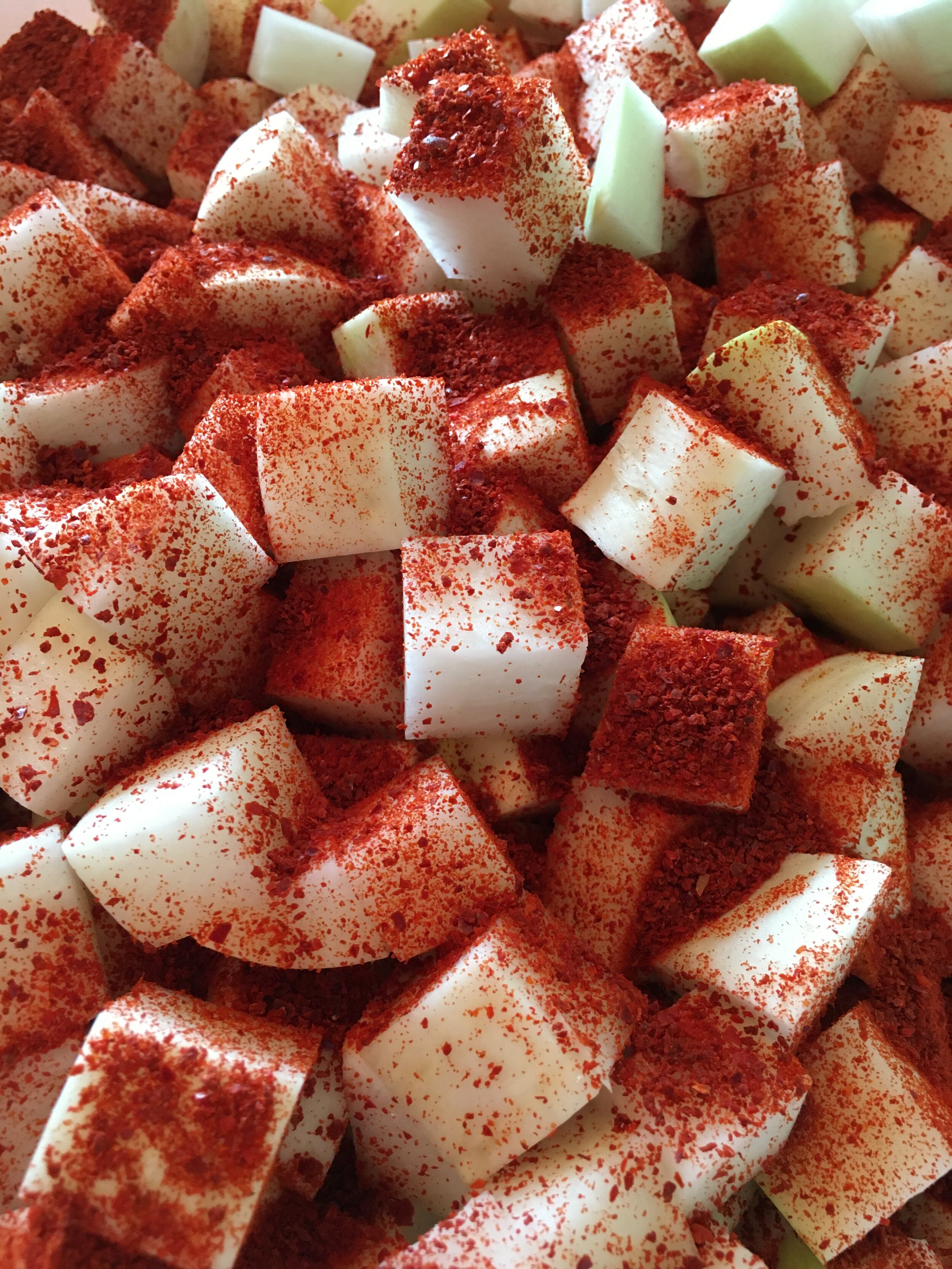Our Story
When my 큰고모 (eldest paternal aunt) emigrated from Seoul to St. Louis, MO USA, her mother sent her with kimchi sauce/starter and a handful of uncertainty. In a strange country, and at the time unable to even get the right ingredients but desperate for a taste of home, she prepared the wrong kind of cabbage in a bleached out bathtub and used the starter from her mother to make kimchi in a cleaned out garbage bin, buried in the backyard. And it was delicious. Her family, her siblings (my father included), wept at the strange familiarity.
Most of us don’t know what it’s like to miss home in that way. But most of us understands the power food has to bring people together, to keep us grounded and filled with warmth from the inside out. Whether it’s Spam fried rice, kimchi jjigae, mashed potatoes, mac and cheese, pho, tacos, cake, jerked chicken, chicken soup, pickled herring, fish and chips, whatever, most of us has a food (or several in my case) we always return to.
Kimchi is not only that food for my family, it’s the foundation of virtually every meal we ever cook at home. Doesn’t matter if we’re having roast turkey or prime rib or seared tofu, you’ll always find a dish of kimchi included amongst the spread.
As the years have passed, with the elder members of our family aging, it occurred to us that we were in danger of losing the flavors, the kimchi, we grew up eating (albeit a far cry from the garbage bin kimchi my Gomo first made stateside). The thought made me sad and despondent, like a slow fading away of self. I decided I needed to learn to make Gomo’s kimchi, even if it would never taste exactly the same way she makes it (but isn’t that always the case?)—which she still does in her mid-70s, I might add.
And now I find myself in a new strange home (wondrous Glasgow), far from my family’s eventually settlement in Seattle, WA, brought here by love and a desire to forge my own story—but not without bringing my family history along for the journey. Gomo Kimchi is homemade, small-batch kimchi made with a mind to share a piece of my family, myself, and Korean culture with the good, kind people of Glasgow (the people really do make Glasgow). It is a preservation and continuation of our family story, it’s diaspora and home—regardless of where we are.

Family kimchi time

Kkakdugi

Brother looks tired, kimchi making is hard work

When the sink ain't big enough

Mmmmm...kimchijeon

See in the middle there? Mom brings her own kimchi to parks

In Seoul

The ultimate combining of cultures: pizza crunch and kimchi

In Skye